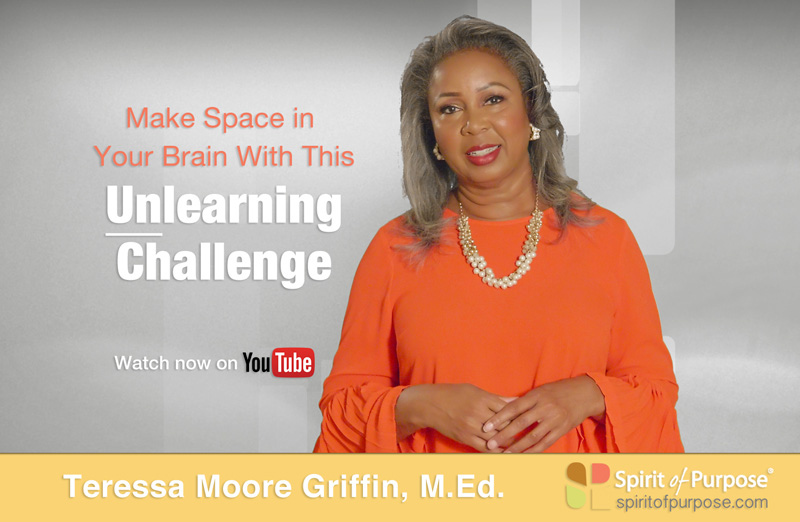VIDEO: Unlearning: Inclusion’s Secret Weapon
We often focus exclusively on education and what we must learn to propel ourselves forward. Continual learning is critical for anyone who values keeping pace with the expectations of today’s business environment. But, just as there is much to learn, there are also many things we must unlearn to make room for real growth and sustained change, especially if we want to build a world where inclusion is the norm.
Many of us hold tightly to old beliefs and ways of thinking and behaving in spite of overwhelming evidence that proves obsolete. I admit that as a Baby Boomer, this is a bit unsettling. I’ve bristled at updates on my computer and phone. I’ve resisted learning and using the advanced technology in my car, and don’t like signing myself in on an iPad-like device at the doctor’s office. It would be comforting to stay the course. But, I also realize that just like I need to update my cellphone, I need to update how I think of myself and the world around me if I want to remain relevant.
In the workplace, I’ve witnessed frustrated co-workers twist themselves in knots because of the manner in which their co-workers communicate or complete projects. Underneath is the implied demand that all people be the same if they want to fit in. We should all love and embrace the exact same things in the exact same way if we want to be a part of the group. Expecting everyone to be the same is the most important thing we must unlearn.
The reality is that each of us is as unique as our fingerprints. This isn’t news. It has always been so. I invite you to join me in a challenge I have set for myself to unlearn the lesson of “US” versus “THEM.” I’m working to override my innate tendency to lump people into convenient groups and categories. No more monolithic categories of black or white, young or old, fat or skinny, right- or left-handed, rich or poor, good or bad, right or wrong. Why? Because categorizing people has less to do with actual similarities and differences and more to do with the unconscious human need to feel in control. We need to put self and others in a box we think we understand. Such boxes are places where unconscious bias, unfair advantage, prejudice and exclusion fester and grow.
Unlearning is taking the high road, which is the longer, more rugged, route up the mountain of consciousness. It means resisting our natural tendency to make snap judgments. It means letting go of our need to be right or comfortable or prevail.
Just as we have the capacity to learn, we have the capacity to unlearn. That is how we, as individuals, cultures and the whole of humanity evolve. What do you need to unlearn to be more inclusive of diversity?


